May 30, 2025 | 19:59 GMT +7
May 30, 2025 | 19:59 GMT +7
Hotline: 0913.378.918
May 30, 2025 | 19:59 GMT +7
Hotline: 0913.378.918
At the news that China agreed to officially import Vietnamese passion fruit products, Vietnam Agriculture News had an exchange with Ms. Ho Thi Loan, Industrial Product Sales Manager for Nafoods Group, the leading exporter of Vietnamese passion fruit products currently.
Ms. Ho Thi Loan affirmed: "This is a great opportunity for large Vietnamese businesses, including Nafoods Group, to reshape the Vietnamese passion fruit industry towards higher quality and larger scale."
- How did Nafoods Group react to the news that passion fruit became the 10th fruit to be officially exported to China?
We were very happy to learn that passion fruit has been prioritized as the 10th fruit to be officially exported to China when this market is currently considering durian and passion fruit. Durian is considered a higher priority in the review and approval process.
Passion fruit is currently a key fruit in the supply chain of Nafoods Group from the breeding, producing and seed supplying stage to the production, processing and distribution of passion fruit products to the international market.
In the past, Nafoods Group was the first unit to request the Ministry of Agriculture and Rural Development to include passion fruit in the China's approval list for official export to this market, as well as actively participate in the process of submitting documents, proof of capacity and registration of growing areas and processing facilities according to the Chinese market's requirements.
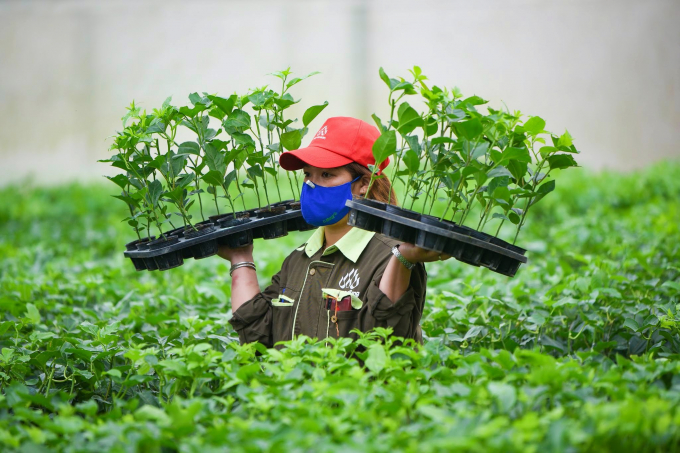
Nafoods Group determined that China's approval of official passion fruit imports will be an opportunity to reshape Vietnam's passion fruit industry. Photo: Tung Dinh.
- As the leading business in export volume regarding Vietnamese passion fruit products, how does Nafoods Group assess the potential of the Chinese market for fresh passion fruit products, not only for the Group but also for Vietnamese passion fruit in general?
Before the Covid-19 pandemic, the amount of fresh passion fruit exports to China through unofficial channels accounted for 60-70% of Vietnam's total passion fruit output. However, the output of fresh passion fruit exports to China since 2020 has been at a modest level of 10-20% due to China's increasingly strict control at border gates.
China's licensing of fresh fruit will benefit passion fruit farmers because the price of fresh fruit is much higher than that of processed ones. This can be explained by the fact that China's demand for fresh fruit is recovering and even has the potential to reach higher levels compared to before the Covid-19 pandemic.
In addition, China's enactment of strict quality control and traceability policies will affect the market for processed fruit materials.
In my opinion, the increase in the price of raw materials and the decrease in output will create great opportunities for Vietnamese large businesses, including Nafoods Group, thereby reshaping the Vietnamese passion fruit industry towards higher quality and larger scale.
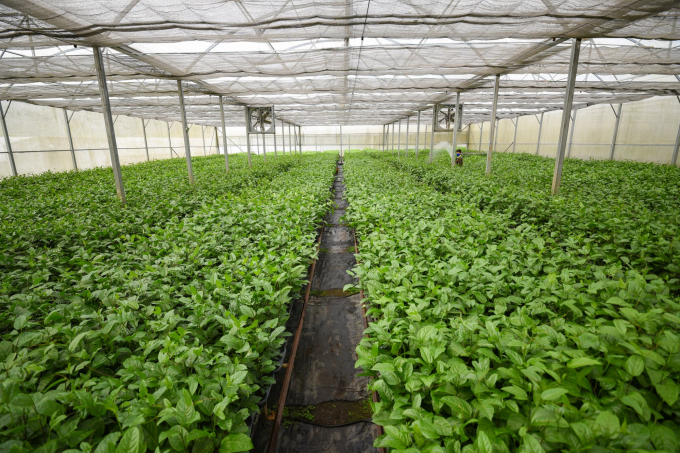
Nafoods Group will focus on expanding and improving the quality of seeds. Photo: Tung Dinh.
- With this new policy, what plan does Nafoods Group have to access this large market with products from passion fruit and fresh passion fruit?
Nafoods Group is currently among the leading companies in exporting Vietnamese passion fruit products to China. With the advantage of an organized supply chain, Nafoods Group will continue to focus on expanding production and supplying passion fruit seedlings to ensure both quality and output.
In addition, we will implement training programs, support as well as accompany farmers in raising awareness about access to growing areas and technical barriers to form professional farming habits.
Another important task is to strengthen the organization of export promotional programs for passion fruit to the Chinese market. Furthermore, we also need to invest in expanding packaging and processing facilities to meet the market's requirements.
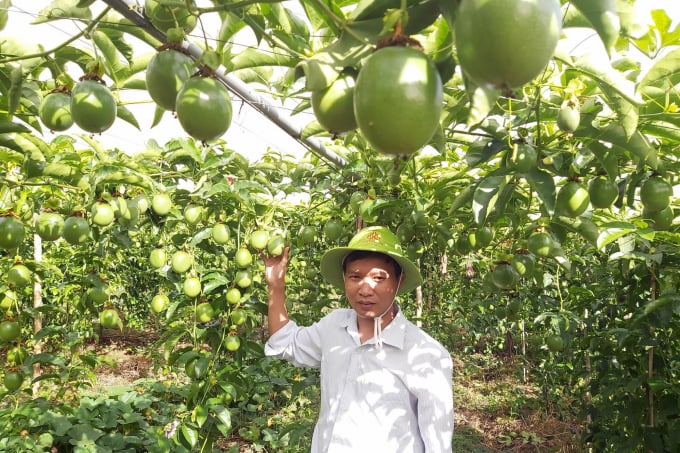
In the immediate future, the Group will promote technical support and training for farmers in passion fruit growing areas, with special attention to the organic and sustainable development. Photo: CD.
- China is a large market and is increasing the quality standards for imported products. To meet these requirements, what policies will Nafoods Group employ in production to increase organic farming, ensuring both productivity and product quality?
Yes, the General Department of Customs of China strictly controls the quality standards for imports of agricultural products and particularly fresh fruits; China pays special attention to issues regarding pests and insects in agricultural products.
In face of these requirements, Nafoods Group has developed policies to respond immediately from the seedling stage including constant research to produce healthy passion fruit varieties, capable of resisting pests, diseases in addition to high yield.
On the other hand, Nafoods Group regularly trains technical staffs and farmers on cultivation, nurture and pest control techniques for passion fruit.
In addition, we also cooperate with agencies that plan growing areas and develop effective models of organic passion fruit cultivation to encourage the active participation in farmers.
Thank you!
After nearly 6 years of negotiation, China has agreed to pilot the import of Vietnamese passion fruit starting from July 1, 2022.
In the immediate future, the General Department of Customs of China will allow the import of Vietnamese fresh passion fruit through 7 border gates in Guangxi province (China), including: Youyi Pass; Pu Zhai; Pingxiang Railway Station; Pingxiang; Dongxing; Longbang and Shuikou.
The General Department of Customs of China recommends that the growing areas and packaging facilities for passion fruit must be registered and approved by the General Department and the Department of Plant Protection of Vietnam. Based on the pilot export - import results, the two countries will assess the import and export situation of Vietnamese fresh passion fruit as a basis for the signing of the official Protocol on phytosanitary control for Vietnamese passion fruit.
Vietnam currently has 46 localities that grow and produce passion fruit trees with an area of over 6,000 hectares and an annual output of over 111,000 tons; the average yield is 22.67 tons per hectare. It is expected that in the period of 2025 - 2030, the country will have a stable area of passion fruit in the range of 12,000 to 15,000 hectares; and the output of fresh fruit will reach 300,000 too 400,000 tons annually.
All growing areas that want to export to China must follow Good Agricultural Practices (GAP), apply integrated pest management (IPM), etc. The Chinese side also sets very strict requirements on packaging facility management, packaging specifications.
Translated by Nguyen Hai Long
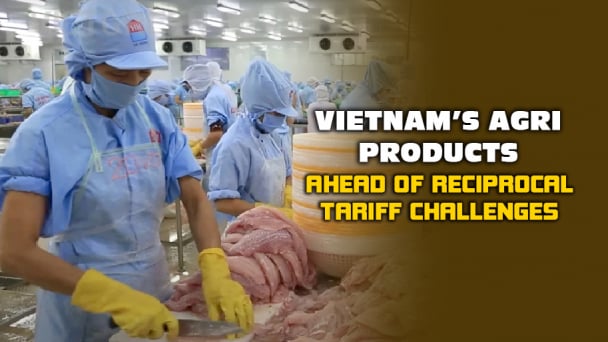
(VAN) Reciprocal tariffs are exerting pressure on U.S. exports, prompting Vietnamese firms to shift their focus to Muslim markets, Thailand, and Brazil.
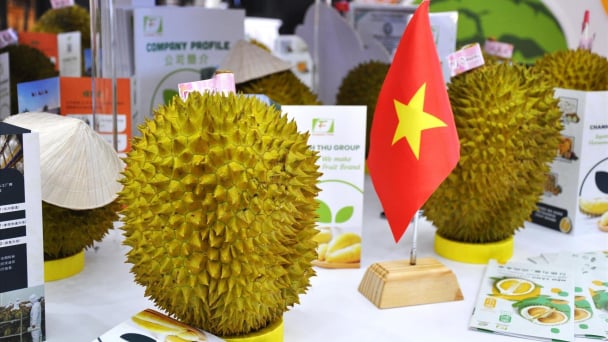
(VAN) A free booth for two years at Xinfadi, Beijing's largest wholesale market, will be allocated to Vietnam's agricultural products.
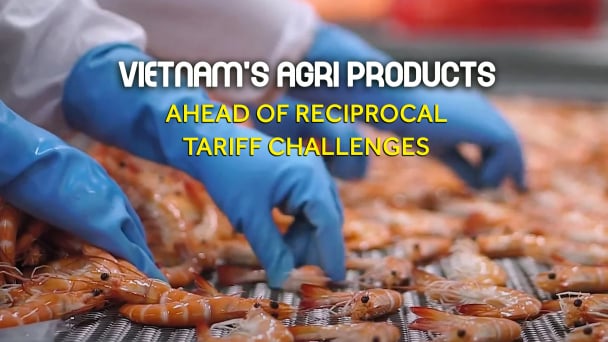
(VAN) Vietnamese shrimp exporters are actively looking for alternative markets and accelerating shipments to the United States in response to the pressure of impending reciprocal tariffs. This is occurring during a temporary tariff suspension.

(VAN) The import-export turnover between Vietnam and Singapore rose amid a trade rebound, with machinery, electrical equipment, and fuels making up the majority of the transaction value.

(VAN) Director General of the General Administration of Customs of China, Ms. Sun Mai Jun, has pledged to implement measures that will ease the import process for Vietnamese agricultural products.

(VAN) Although Vietnam is still increasing its coffee exports, the industry is currently in the process of determining market strategies in response to the U.S. imposition of reciprocal tariffs.

(VAN) With rising demand in Muslim-majority countries, Halal certification is becoming a critical passport for Vietnamese agricultural products seeking sustainable market access and consumer trust in the Middle East and Africa.